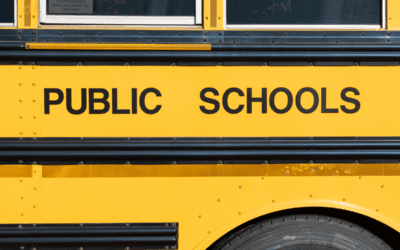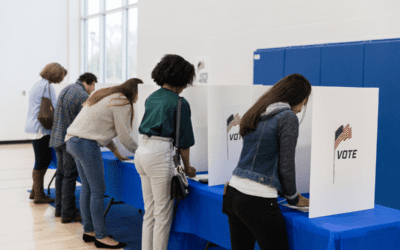
#image_title
Governor’s surprise list comes as legislators outline ways to attack contamination
A bipartisan, legislative water quality task force set up by Assembly Speaker Robin Vos released its much-anticipated list of recommendations Wednesday: 13 proposed bills that would invest $10 million toward Wisconsin’s dirty water problems, including making it easier for homeowners to get financial help with contaminated wells.
However, while detailing the results of their year-long efforts, Rep. Todd Novak, R-Dodgeville, and Rep. Katrina Shankland, D-Stevens Point, the task force’s chair and co-chair, learned theirs is not the only list of proposals.
Democratic Gov. Tony Evers released his own clean water report shortly before the task force’s news conference began, written by the Department of Natural Resources at his instruction. Neither Novak nor Shankland knew the governor was planning such a move, they said. In fact, Novak had just told reporters he felt “very good” about the governor’s support for their proposals after he and Shankland left a meeting with Evers Tuesday afternoon.
The task force recommendations are designed to tackle the state’s ongoing water pollution from nitrates, lead, PFA’s, commonly referred to as “forever chemicals,” and runoff from new construction projects or agricultural fields.
Just as the state faces multiple water pollution sources, it also struggles with multiple soil types which makes a one-size-fits-all solution not possible.
“The geography is variable and diverse,” Novak said. “What works in one region won’t work in another.”
Specifically, the task force recommends the creation of the Office of Water Policy. The office would be housed within the Wisconsin Geological and Natural History Survey and would include $150,000 for one full-time staffer.
A summary of the legislation said the purpose of the office is “to coordinate efforts to manage, conserve, protect, and enhance the productivity of the state’s water resources for domestic, municipal, commercial, agricultural, industrial, recreational, and other private and public uses.”
One recommendation would also change the well compensation grant program. Currently, the DNR provides grants to landowners to replace, reconstruct or treat contaminated wells or to pay the costs of filling and sealing a well or connecting to a public water supply so long as the well has been polluted by nitrates. In the proposal, wells affected by other pollutants also will be eligible.
Another contaminant addressed in the report is firefighting foam that contains PFAS, a man-made chemical linked to cancer and other health risks. A proposal would allow state officials to collect and dispose of foam products used by firefighters. The cities of Madison and Fond Du Lac already took the proposal a step further by banning the use of the foam last year.
Recommendations also include an increase in funding for county conservation staff and a pilot program to address nitrate contamination which is often an impact of agricultural runoff.
The recommendations are the result of an effort that began last January when Assembly Speaker Robin Vos, R-Rochester, announced the creation of the task force. In March, the group held its first of 14 public hearings across the state to hear from residents.
“No one in Wisconsin should not be able to access clean drinking water,” Shankland said. “No one should have to use bottled water when they brush their teeth or make coffee. Yet that is the reality right now in Wisconsin, she said.
In a press release, Gov. Evers said he directed senior staff from three agencies to attend all of the task force hearings and create a report meant to summarize feedback from experts and the public during the “Year of Clean Drinking Water” he had declared.
Staff from the River Alliance of Wisconsin also attended each of the hearings across the state. They provided input to the task force and have been closely following the issue, said Allison Werner, the group’s policy and advocacy director.
“This is a fine first start, but there is lots more still to do,” Werner said. “The fixes we need are not cheap but they will only get more expensive the longer we wait to address and fund them. Prevention is much more affordable than the cost to fix the problems down the road.”
Despite dueling reports now circulating in the Capitol, the bi-partisan spirit of addressing water quality appeared to remain intact. The proposals do contain overlap, and most agree this marks a first step toward solving the state’s water pollution problems.
“We are interested in the same topic and are working together,” Shankland said.

Opinion: Many to thank in fair maps victory for Wisconsinites
On February 19, 2024, Governor Tony Evers signed into law new and fair state legislative maps, bringing hope for an end to over a decade of...

Opinion: Empowering educators: A call for negotiation rights in Wisconsin
This week marks “Public Schools Week,” highlighting the dedication of teachers, paras, custodians, secretaries and others who collaborate with...

Op-ed: Trump’s journey from hosting The Apprentice to being the biggest loser
Leading up to the 2016 election, Donald Trump crafted an image of himself as a successful businessman and a winner. But in reality, Trump has a long...

Not just abortion: IVF ruling next phase in the right’s war on reproductive freedom
Nearly two years after the US Supreme Court overturned Roe v. Wade, another court is using that ruling to go after one of the anti-abortion right’s...




